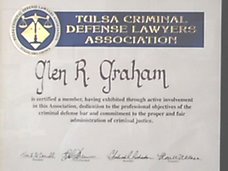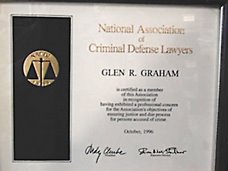From Speech by Justice Janice Rogers Brown, Associate Justice of California Supreme Court - April 20, 2000, at the Federalists Society at the University of Chicago Law School.
You will probably disagree with certain parts of it, but there is usually something that can be gained from ideas and theories of other people.
Subject: Angels do not govern, men do-
"If men were angels, no government would be necessary." From James Madison.
"What is government itself but the greatest of all reflections on human nature? If men were angels, no government would be necessary. If angels were to govern men, neither external nor internal controls on government would be necessary." From JAMES MADISON, The Federalist, ed. Benjamin F. Wright, no. 51, p. 356 (1961)
CHRISTIANITY: "All things whatsover you would that men should do to you, do you even to them: For this is the law and the prophets." (Matthew 7:12)
Jean Francois Revel warns: "The totalitarian mind can reappear in some new and unexpected and seemingly innocuous and indeed virtuous form. [¶]... [I]t ... will [probably] put itself forward under the cover of a generous doctrine, humanitarian, inspired by a concern for giving the disadvantaged their fair share, against corruption, and pollution, and 'exclusion.'" Jean Francois Revel, Democracy Against Itself (The Free Press 1993) ."Socialism concentrated all the wealth in the hands of an oligarchy in the name of social justice, reduced peoples to misery in the name of shar[ed] resources, to ignorance in the name of science. It created the modern world's most inegalitarian societies in the name of equality, the most vast network of concentration camps ever built [for] the defense of liberty." See, Revels, ibid.
There is nothing new, of course, in the idea that the framers did not buy into the notion of human perfectibility. And the document they drafted and the nation adopted in 1789 is shot through with provisions that can only be understood against the supposition that humanity's capacity for evil and tyranny is quite as real and quite as great as its capacity for reason and altruism. Indeed, as noted earlier, in politics, the framers may have envisioned the former tendency as the stronger, especially in the wake of the country's experience under the Articles of Confederation. The fear of "factions," of an "encroaching tyranny"; the need for ambition to counter ambition"; all of these concerns identified in the Federalist Papers have stratagems designed to defend against them in the Constitution itself. We needed them, the framers were convinced, because "angels do not govern"; men do.
Writing 50 years ago, F.A. Hayek warned us that a centrally planned economy is "The Road to Serfdom."3 He was right, of course; but the intervening years have shown us that there are many other roads to serfdom. In fact, it now appears that human nature is so constituted that, as in the days of empire all roads led to Rome; in the heyday of liberal democracy, all roads lead to slavery. And we no longer find slavery abhorrent. We embrace it. We demand more. Big government is not just the opiate of the masses. It is the opiate. The drug of choice for multinational corporations and single moms; for regulated industries and rugged Midwestern farmers and militant senior citizens.
I will close with a story I like a lot. It's a true story. It happened on June 10, 1990. A British Airways jet bound for Malaga, Spain, took off from Birmingham, England. It was expected to be a routine flight. As the jet climbed through the 23,000-foot level, there was a loud bang; the cockpit windshield directly in front of the captain blew out. The sudden decompression sucked Captain Lancaster out of his seatbelt and into the hole left by the windscreen. A steward who happened to be in the cockpit managed to snag the captain's feet as he hurtled past. Another steward rushed onto the flight deck, strapped himself into the captain's chair and, helped by other members of the crew, clung with all his strength to the captain. The slipstream was so fierce, they were unable to drag the pilot back into the plane. His clothing was ripped from his body. With Lancaster plastered against the nose of the jet, the co-pilot donned an oxygen mask and flew the plane to Southampton —approximately 15 minutes away — and landed safely. The captain had a fractured elbow, wrist and thumb; a mild case of frostbite, but was otherwise unharmed.
We find ourselves, like the captain, in a situation that is hopeless but not yet desperate. The arcs of history, culture, philosophy, and science all seem to be converging on this temporal instant. Familiar arrangements are coming apart; valuable things are torn from our hands, snatched away by the decompression of our fragile ark of culture. But, it is too soon to despair. The collapse of the old system may be the crucible of a new vision. We must get a grip on what we can and hold on. Hold on with all the energy and imagination and ferocity we possess. Hold on even while we accept the darkness. We know not what miracles may happen; what heroic possibilities exist. We may be only moments away from a new dawn.
In truth, they need not banish us to the gulag. We are not much of a threat, lacking even a coherent language in which to state our premise. [I should pause here to explain the source of the title to this discussion. Unless you are a very old law student, you probably never heard of "A Whiter Shade of Pale."] "A Whiter Shade of Pale" is an old (circa 1967) Procol Harum song, full of nonsensical lyrics, but powerfully evocative nonetheless. Here's a sample:
"We skipped the light fandango turned cartwheels cross the floor I was feeling kinda seasick but the crowd called out for more.
The room was humming harder as the ceiling flew away. When we called out for another drink the waiter brought a tray."
There is something about this that forcibly reminds me of our current political circus. The last verse is even better.
"If music be the food of love then laughter is its queen and likewise if behind is in front then dirt in truth is clean...."
Sound familiar? Of course Procol Harum had an excuse. These were the 60's after all, and the lyrics were probably drug induced. What's our excuse?
From Speech by Justice Janice Rogers Brown, Associate Justice of California Supreme Court - April 20, 2000, at the Federalists Society at the University of Chicago Law School.
Read the entire speech, click here:
http://www.constitution.org/col/jrb/00420_jrb_fedsoc.htm
You will probably disagree with certain parts of it, but there is usually something that can be gained from ideas and theories of other people.
Angels Do Not Govern, Men Do -If Music Be the Food of Love then Laughter is its Queen- We Danced the Light Fandango, Turned Cartwheels Cross the Floor
Subscribe to:
Post Comments (Atom)






No comments:
Post a Comment